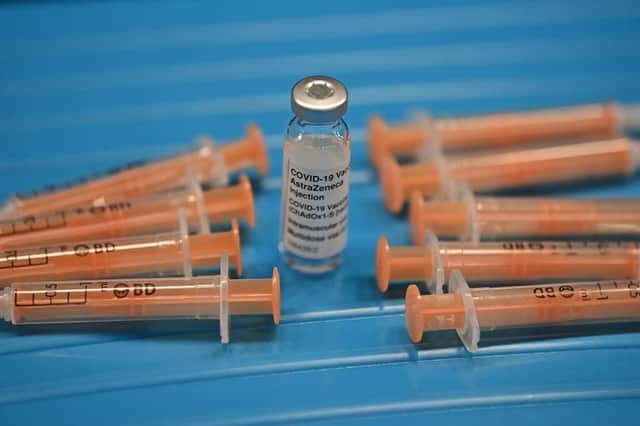Oxford Covid jab can be used in all adults says WHO - and against new variants


Scientists advising the World Health Organisation (WHO) have recommended the use of the Oxford/AstraZeneca Covid-19 vaccine in adults of all ages.
WHO scientists have now issued interim recommendations on the vaccine, stating that it should be given to people aged 18 and above “without an upper age limit”.
Advertisement
Hide AdAdvertisement
Hide AdThe announcement comes after several countries chose not to give the vaccine to people over the age of 65, due to concerns over its effectiveness.
Suitable for over 65s
Dr Alejandro Cravioto, chairman of the WHO’s Strategic Advisory Group of Experts on Immunisation (also known as Sage) acknowledged that this is limited data from clinical trials on people aged over 65, but said results on efficacy for this age group “had a wide confidence interval”.
As such, he said that Sage believes the response of this group “cannot be any different” to groups of a younger age.
He said: “Since we have identified people over 65 was one of our priority groups in the prioritisation roadmap… looking at the safety and immunogenicity data… we recommend for the vaccine to be used in people 18 years and above, without an upper age limit.
Advertisement
Hide AdAdvertisement
Hide Ad“That means people over 65 years of age should be given the vaccination.”
Dr Katherine O’Brien, director of the department of immunisation, vaccines and biologicals with the WHO, said modelling data had shown that even when efficacy of the vaccine dropped to as low as 10 per cent, “it’s still the right thing to do to immunise older adults with a low efficacy vaccine because of the high risk of severe disease and mortality in that age group”.
Speaking about countries that had chosen not to administer the vaccine to the over 65s, she said: “There’s no reason, especially because the over-65s are at the very highest risk of severe disease and death, that a product that has significant efficacy – it should go ahead and be used.
“That is the priority group and so there’s no reason to constrain the AZ (AstraZeneca) product from a general recommendation in the view of Sage and adopted by WHO for an age criteria, while we’re also learning and accruing more evidence.”
Advertisement
Hide AdAdvertisement
Hide AdDoses between 4 and 12 weeks
Sage advised that the vaccine should be given in two doses, with the second dose to be administered between four and 12 weeks after the first.
Dr Cravioto explained that the window of eight to 12 weeks was the “best time” to give a second dose because the delay produces a “much better immune response”.
He said: “We had a long review of the evidence, talked to the experts and the people who are directly involved with a trial.
“Based on the current evidence, Sage recommends that these vaccines should be administered in two doses of half a millilitre each with an interval of between four and 12 weeks between the first and the second dose.”
Advertisement
Hide AdAdvertisement
Hide AdRecommended against Covid variants
The WHO is also recommending the use of the vaccine even if there are variants present in a country, despite a small study in South Africa suggesting the jab was not effective against mild illness caused by the mutation discovered there.
Professor Sarah Gilbert, chief investigator on the Oxford vaccine trial, said the WHO’s recommendation “paves the way to more widespread use of the vaccine to protect people against Covid-19 and gain control of the pandemic”.
Her Oxford colleague, Professor Andrew Pollard, hailed it as an “important milestone in extending access to the Oxford-AZ vaccine to all corners of the world”.
The jab is much easier to transport than some of the other Covid-19 vaccines as it does not need to be stored at ultra-low temperatures.
Advertisement
Hide AdAdvertisement
Hide AdThe University of Oxford and pharmaceutical company AstraZeneca have said that they will provide the vaccine on a not-for-profit basis for the duration of the pandemic across the world, and “in perpetuity” to low and middle-income countries.
Dr Soumya Swaminathan, the WHO’s chief scientist, said the guidance was an “important milestone”, stating: “These guidelines that are being released today are very, very important, because the Oxford/AstraZeneca vaccine is one of the main vaccines at this point in the Covax facility – it’s going to be procured in hundreds of millions of doses, and distributed around the world.
“And so many countries will be receiving their first tranches of the vaccine from the Covax facility later in February.
“This is one of those vaccines which can be stored in ordinary refrigerator temperatures, and therefore it’s going to be very useful for a large number of countries with different situations on the ground so logistically, it’s easier to use.”